15 Surprising Things You Can’t Have In Your Yard Anymore
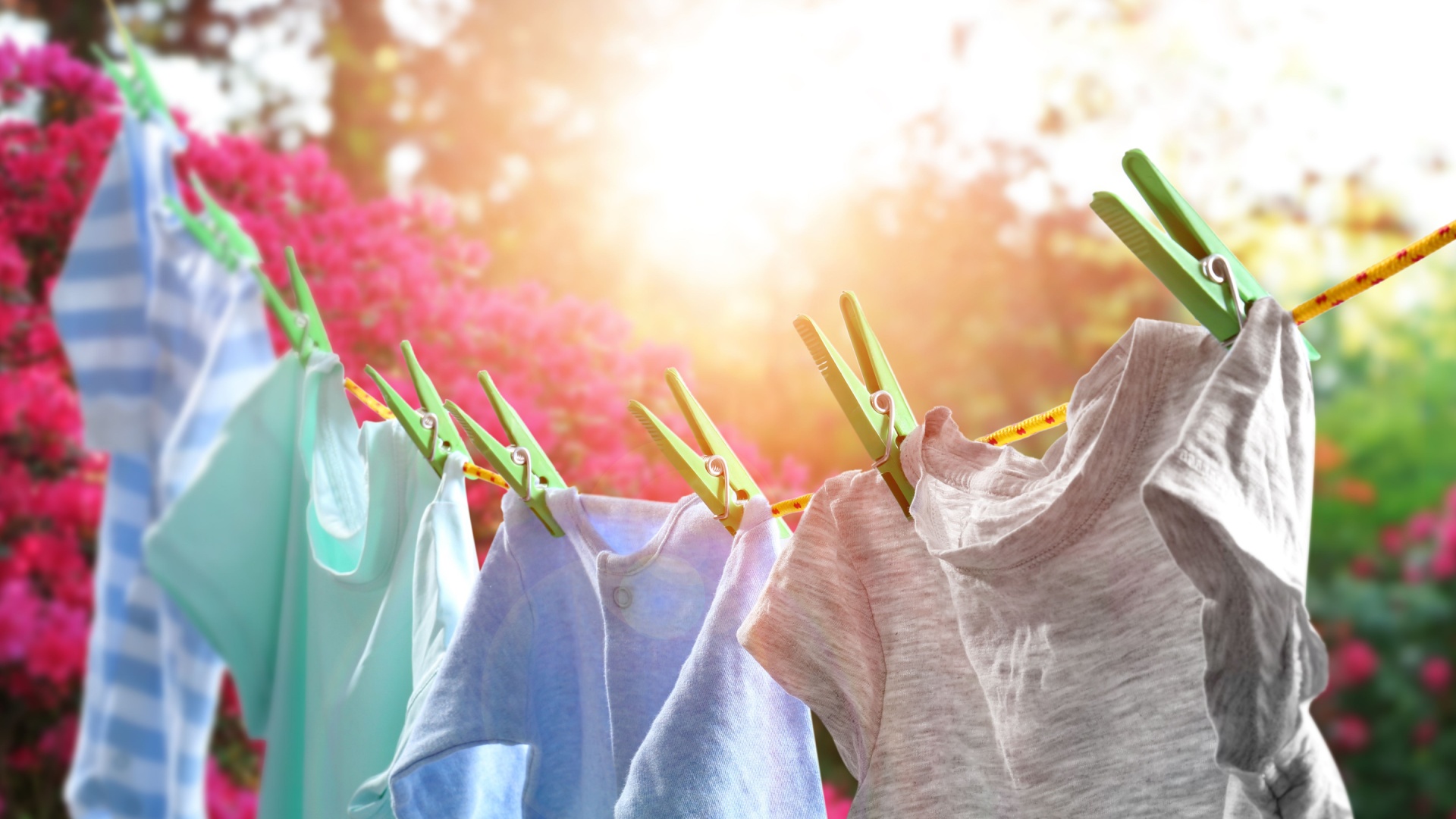
Remember when your yard was your personal kingdom where you could do whatever you wanted? Those days are fading fast as new regulations and neighborhood rules change what’s allowed on your property.
From once-common plants to certain decorations, many items are now restricted or banned completely. Take a look at what might be causing trouble in your yard without you even knowing it.
1. Bamboo Gone Wild

Running bamboo varieties have been outlawed in many communities because they’re basically plant invaders. Once established, these aggressive growers send underground runners everywhere, destroying foundations and invading neighbors’ yards.
Many homeowners planted bamboo for privacy without realizing the consequences. Now they face hefty fines or removal costs, sometimes reaching thousands of dollars. Before planting any bamboo, check local regulations and consider clumping varieties instead.
2. Clotheslines in the Breeze
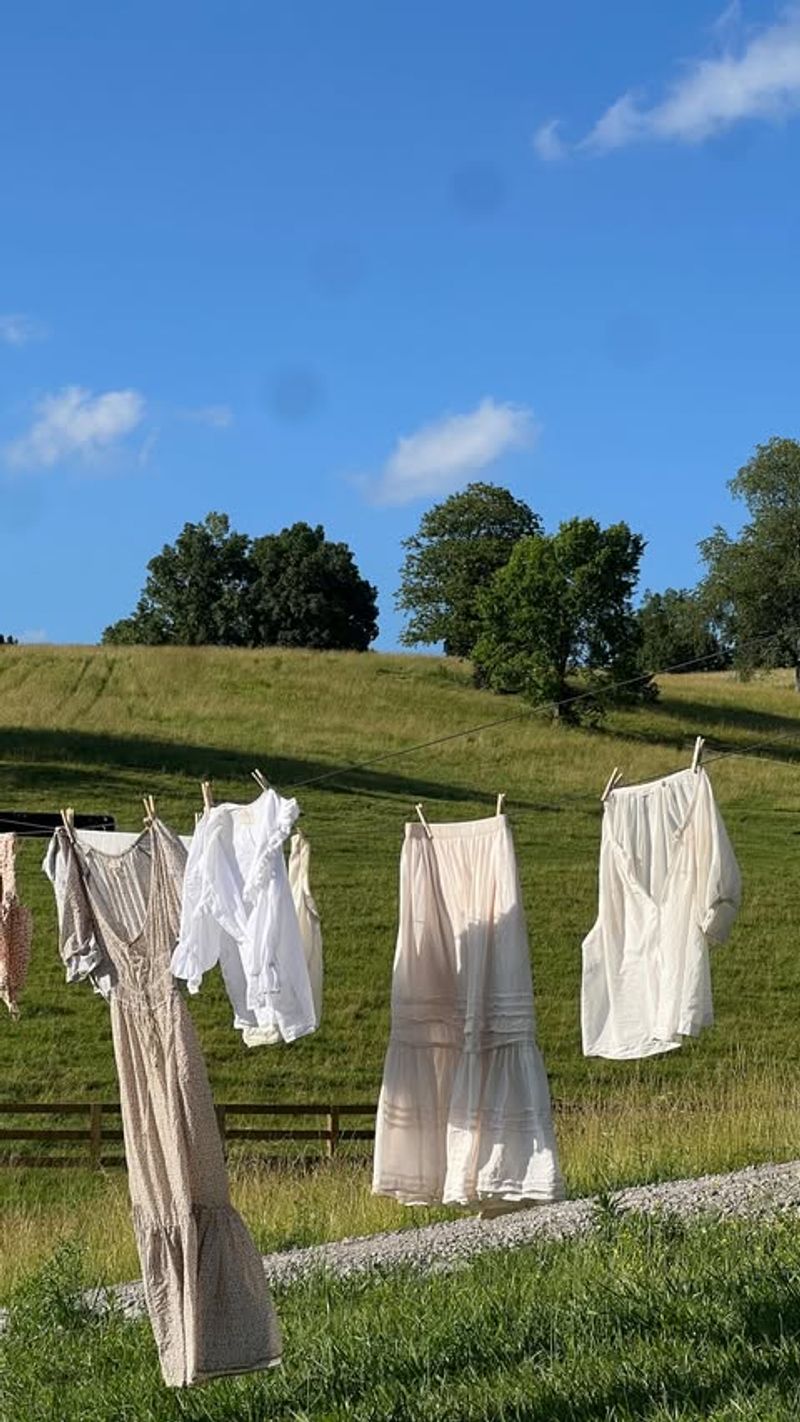
Hanging laundry outside seems harmless, right? Not according to many HOAs and neighborhood covenants that have banned clotheslines completely. The reasoning? They believe clotheslines look unsightly and lower property values.
Fortunately, some states have fought back with “right to dry” laws that override these bans. These laws recognize that clotheslines save energy and money. Check your local regulations before stringing up a line, or you might receive an unwelcome notice.
3. Trampolines Without Safety Nets
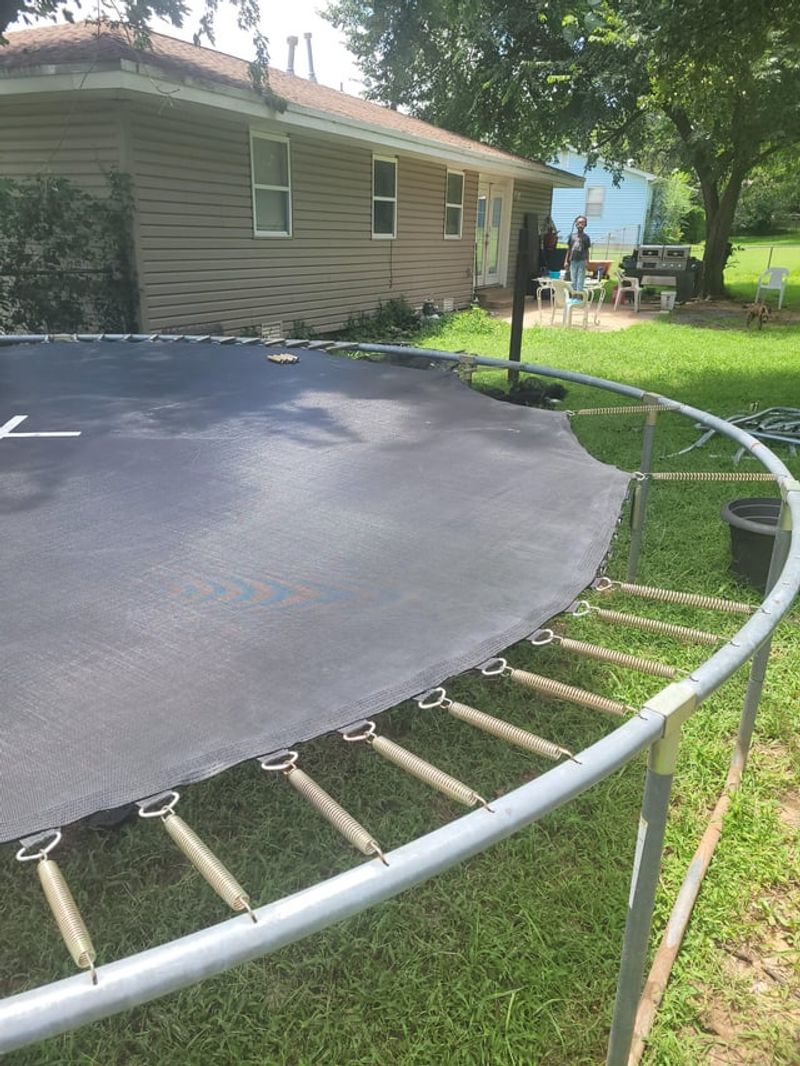
Remember jumping freely on trampolines with friends? Those days are bouncing away. Many insurance companies now refuse to cover homes with trampolines, or they charge much higher premiums.
Some neighborhoods have banned them outright due to liability concerns. If trampolines are allowed in your area, they typically require safety enclosures and must be placed certain distances from property lines. The days of the open-air trampoline have definitely sprung away.
4. Rain Barrels in Certain States
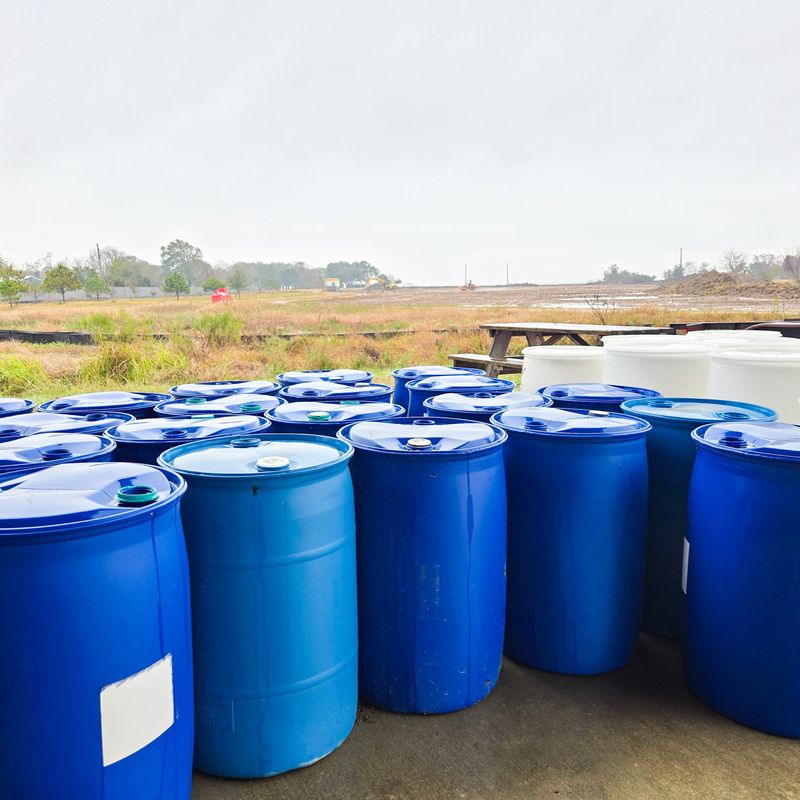
Collecting rainwater seems eco-friendly, but it’s actually illegal in some regions! Water rights laws in western states like Colorado once completely prohibited rain barrels, considering that water the property of downstream users.
Rules have relaxed in recent years, but restrictions still exist. Many areas now require permits or limit collection amounts. Before installing rain barrels, research local regulations to avoid potential fines. What seems like a simple conservation effort could accidentally make you a water thief!
5. Certain Vegetable Gardens in Front Yards
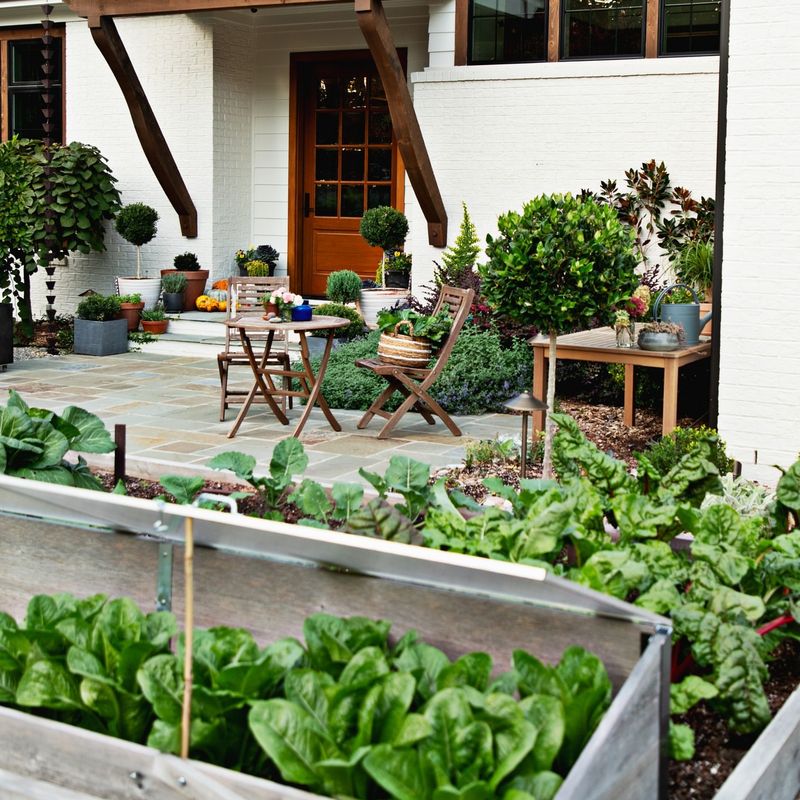
Growing tomatoes where people can see them? Scandalous! Front yard vegetable gardens face increasing restrictions in many communities. Some homeowners have been forced to rip out productive gardens or face daily fines.
The battle centers around aesthetics versus practicality. Critics claim vegetable gardens look messy, while supporters argue for food sovereignty. Before tilling your front lawn, check local ordinances. The good news? Many communities are reversing these bans as growing food at home becomes more popular.
6. Towering TV Antennas
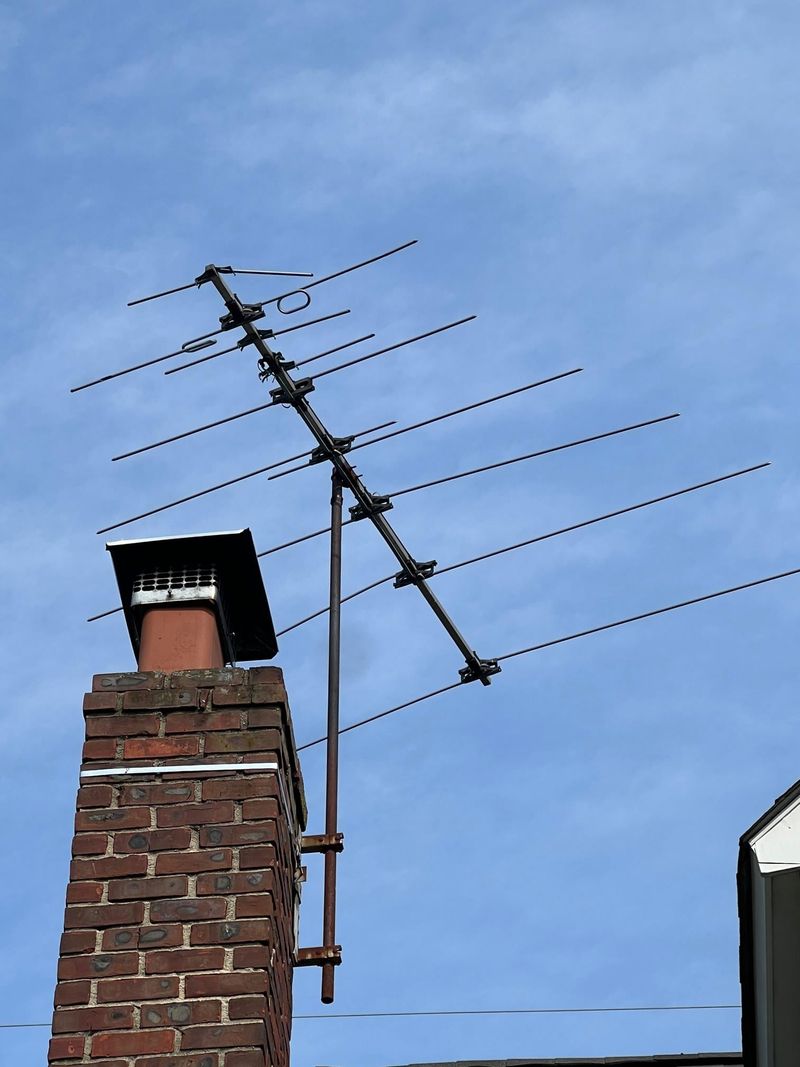
Those massive metal TV antennas that once crowned rooftops have largely disappeared from American yards. Many HOAs and municipalities have restricted or banned these structures, considering them eyesores in modern neighborhoods.
While satellite dishes enjoy some federal protection, the same doesn’t apply to all antenna types. The restrictions reflect changing technology and aesthetic concerns. Nowadays, streaming services and cable have made these once-essential structures obsolete for most homeowners, but cord-cutters should check local rules before installing one.
7. Backyard Chicken Flocks
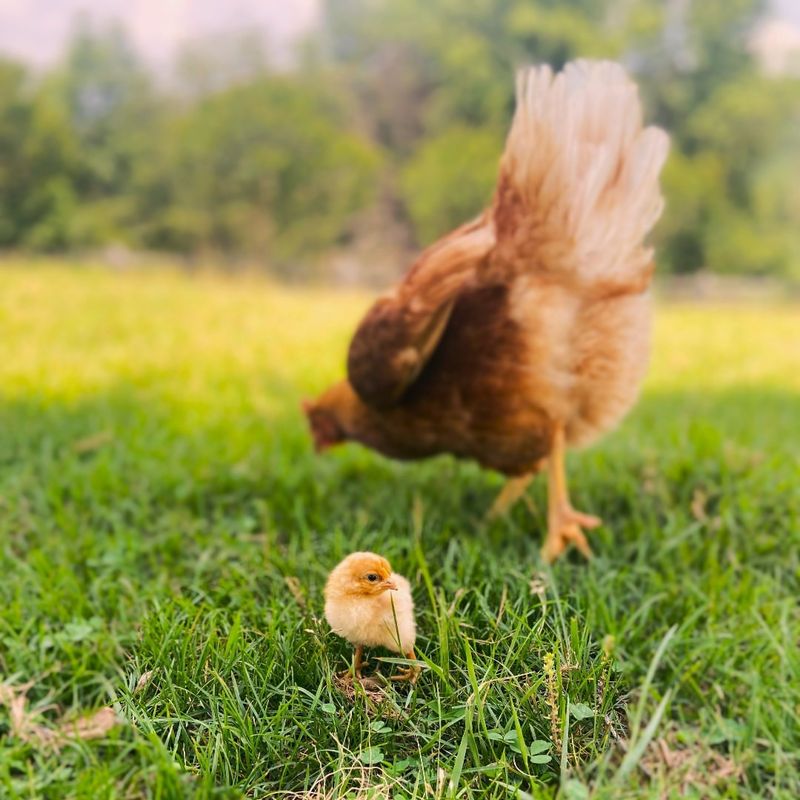
Urban chicken keeping has exploded in popularity, but many areas still prohibit these feathered friends. Even chicken-friendly communities often limit flock size, ban roosters entirely, or require coops to be certain distances from property lines.
The restrictions aim to balance sustainability interests with noise and odor concerns. Before bringing home adorable chicks, research local ordinances thoroughly. Many chicken enthusiasts have faced heartbreak when forced to rehome their birds after complaints from neighbors or discovering previously unenforced regulations.
8. Artificial Grass in Historic Districts
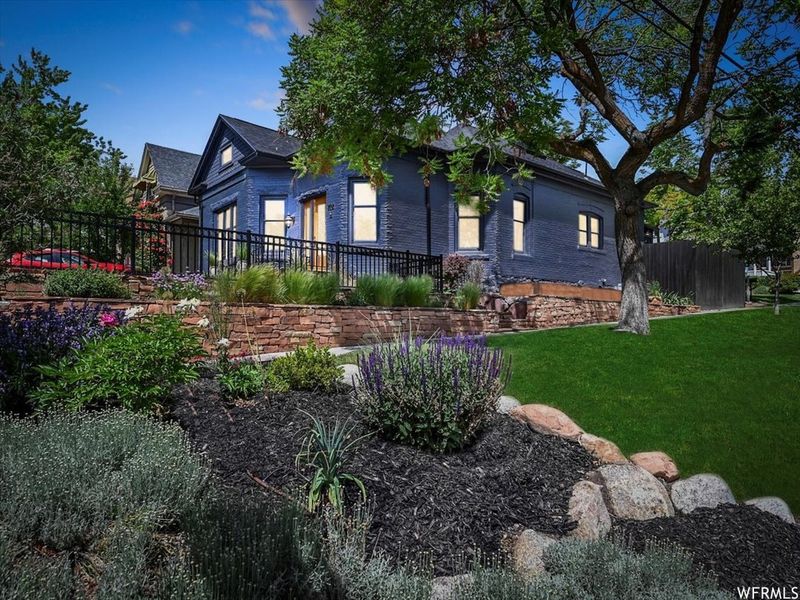
Fake grass seems like a water-saving solution, but it’s forbidden in many historic neighborhoods and some environmentally-conscious communities. Preservation committees often ban artificial turf because it doesn’t match the historic character of older neighborhoods.
Environmental concerns also play a role, as some types of artificial grass create heat islands and don’t support beneficial insects. Before investing in fake turf, check with local authorities. The perfect-looking lawn you’re planning might actually violate local codes and result in removal orders.
9. Certain Breeds of Dogs

Some communities have enacted breed-specific legislation that prevents homeowners from keeping certain dog breeds in their yards. These controversial laws typically target breeds like pit bulls, Rottweilers, and German Shepherds, regardless of individual dog temperament.
Insurance companies may also refuse coverage for homes with certain breeds. Animal advocates fight these restrictions, arguing they discriminate unfairly. If you’re a dog lover, research local ordinances before bringing home a new pet, as some municipalities require special permits or extra insurance for restricted breeds.
10. Non-Native Plants That Spread
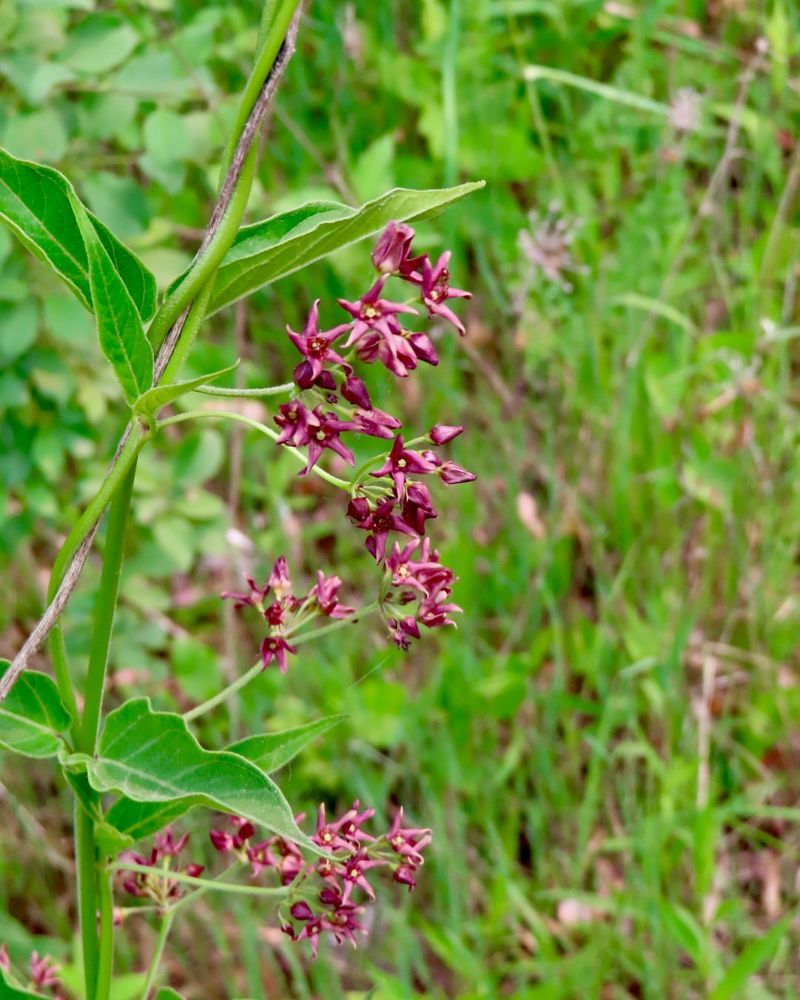
Many popular ornamental plants are now blacklisted because they’ve become invasive nightmares. English ivy, purple loosestrife, and Japanese barberry might look beautiful but have been banned in numerous regions for escaping yards and overwhelming native ecosystems.
Growing these plants can result in fines, and some municipalities require removal at the homeowner’s expense. The list of prohibited plants varies by region based on local ecosystems. Before purchasing plants, check your state’s invasive species list to avoid costly mistakes and environmental damage.
11. Front Yard Boat Storage
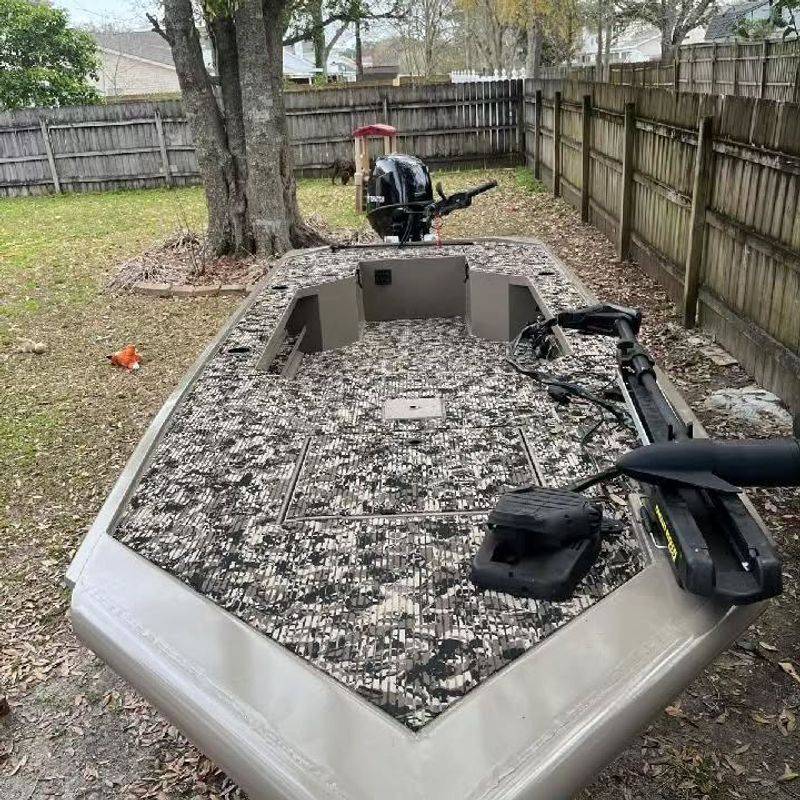
Keeping your fishing boat or sailboat in the driveway has become increasingly restricted. Many municipalities and nearly all HOAs now prohibit long-term storage of boats, RVs, and other recreational vehicles in driveways or front yards.
These ordinances aim to maintain neighborhood aesthetics and property values. Violations often result in citations and daily fines. If you’re a boat owner, investigate storage options before purchasing a home. Some communities offer compromise solutions like allowing temporary loading periods or screened side-yard storage.
12. Wood-Burning Fire Pits
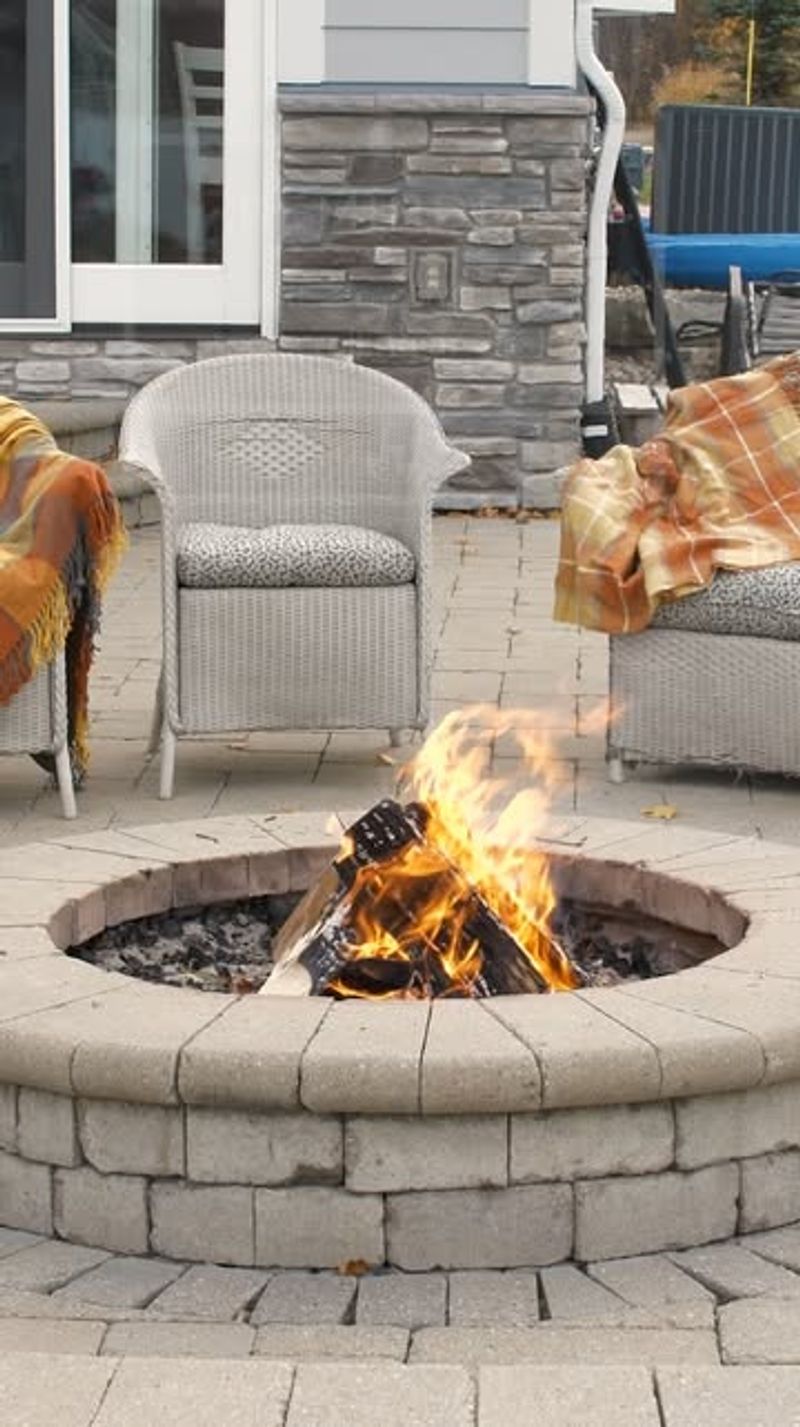
Gathering around a backyard fire pit has become complicated in many areas. Air quality concerns have led numerous municipalities to restrict or completely ban wood-burning fire pits, especially in urban and suburban neighborhoods.
Some areas permit fires only on certain days or require expensive permits. Gas-burning alternatives are typically still allowed but lack that authentic campfire experience. Before installing a fire pit or hosting a marshmallow roast, check local fire codes. Violations can lead to significant fines.
13. Tall Privacy Fences
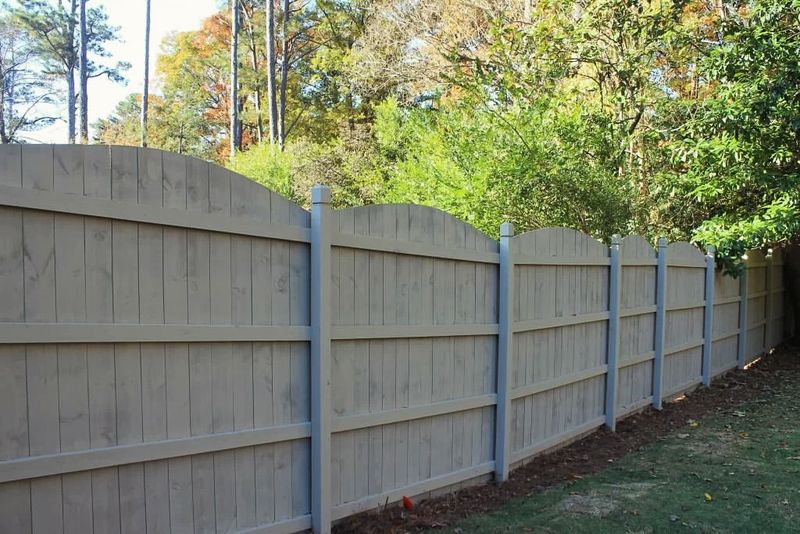
Dreams of a private backyard oasis often crash into fence height restrictions. Most communities limit residential fence heights to 6 feet in backyards and even lower in front yards, typically 3 or 4 feet.
These restrictions maintain neighborhood visibility and prevent property disputes. Installing taller fences usually requires special permits that neighbors can contest. Before building that 8-foot privacy barrier, check local zoning codes. The fence that blocks your neighbor’s view might also violate local ordinances, resulting in forced removal.
14. Multiple Unlicensed Vehicles
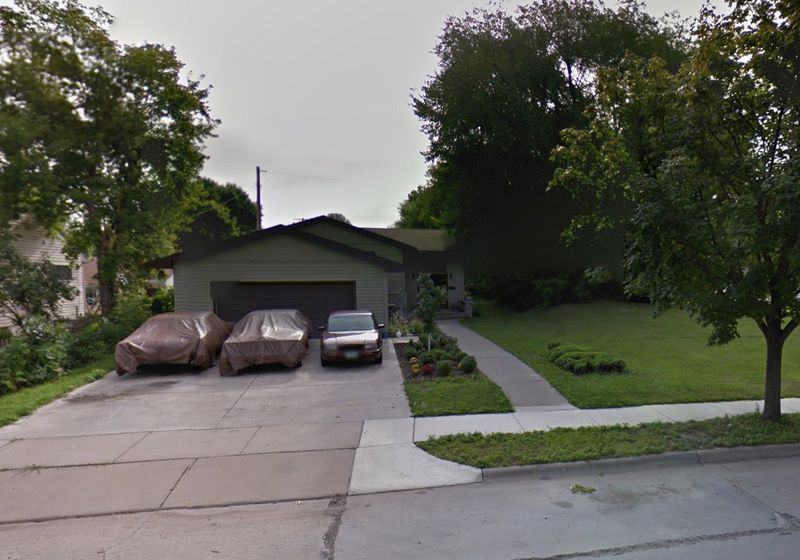
Car enthusiasts face increasing restrictions on keeping project vehicles in their yards. Many municipalities now limit the number of unlicensed or inoperable vehicles allowed on residential property, sometimes to just one or none at all.
These ordinances aim to prevent “junkyards” in residential areas. Violations can trigger citations, fines, or even forced towing at the owner’s expense. If you’re planning to restore vintage cars, check local codes first. Some areas require project vehicles to be stored in garages or completely out of public view.
15. Large Political Signs Year-Round
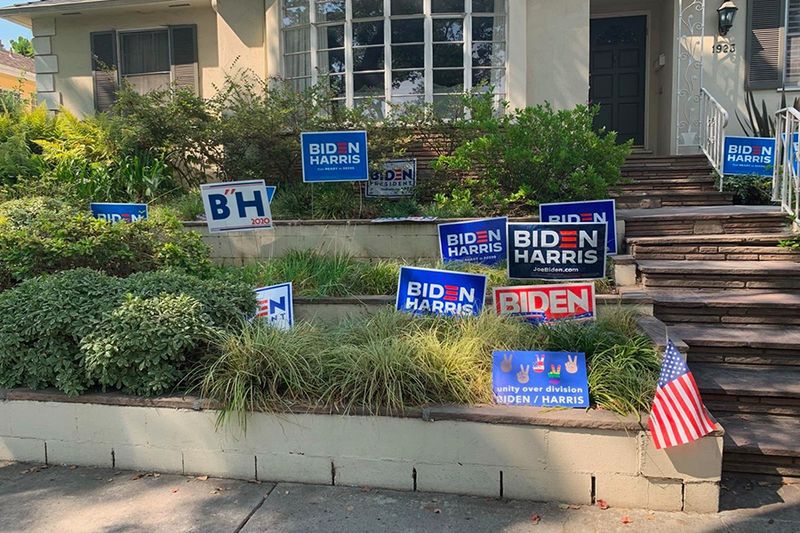
Political expression in your yard now comes with time limits in many places. While temporary political signs enjoy First Amendment protections during election seasons, many municipalities and HOAs restrict their size and how long they can remain posted.
Typically, regulations require removal within a certain period after an election. Some communities also limit sign sizes to prevent massive displays. Before planting that giant political statement in your yard year-round, check local ordinances. Your political passion could lead to fines if displayed outside permitted timeframes.






